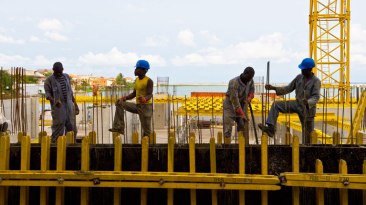| Online: | |
| Visits: | |
| Stories: |

| Story Views | |
| Now: | |
| Last Hour: | |
| Last 24 Hours: | |
| Total: | |
Does Lowering Workers’ Protection Mean Stronger Employment Growth?
(Before It's News) A recent ILO flagship report looks at the employment impact of labour reforms.
The ILO’s recent flagship report World Employment and Social Outlook 2015: The Changing nature of jobs , which analysed data from 63 countries, including the most advanced economies, as well as selected African, Asian and Latin American countries, over the last 20 years, suggests that lowering protection for workers does not stimulate job growth.
The research results showed how the relative strength of labour legislation in a specific country does not affect employment and unemployment rates – neither negatively nor positively. This finding is consistent across different econometric data as well as for advanced, emerging and developing countries.
“The report clearly shows that, if carefully designed, employment regulation can provide protection to workers without harming job creation,” says Steven Tobin, one of the authors of the report. Tobin added, “in fact, a number of emerging and developing countries enhanced the protection of workers without harming job creation.”
Policy design is key
According to the report, the issue is how to design regulation for the economic and labour market situation of a specific country. Regulations that are too lax can be as counterproductive to economic growth, job creation, equality and social cohesion as those that are too stringent.
In addition, balanced labour legislation policies are more likely to be achieved where effective social dialogue between government, employers and workers can help find the way forward.
“Our report comes to the conclusion that reducing protection for workers does not lower unemployment. Indeed, it suggests that poorly designed changes that weaken employment protection legislation are likely to be counterproductive for employment, in both the short and the long runs. The perfect balance will depend on structural country-specific characteristics as well as the state of the business cycle, making it essential that employers’ and workers’ organizations are associated to the reform process,” Tobin concludes.
Source: http://human-wrongs-watch.net/2015/07/20/does-lowering-workers-protection-mean-stronger-employment-growth/




